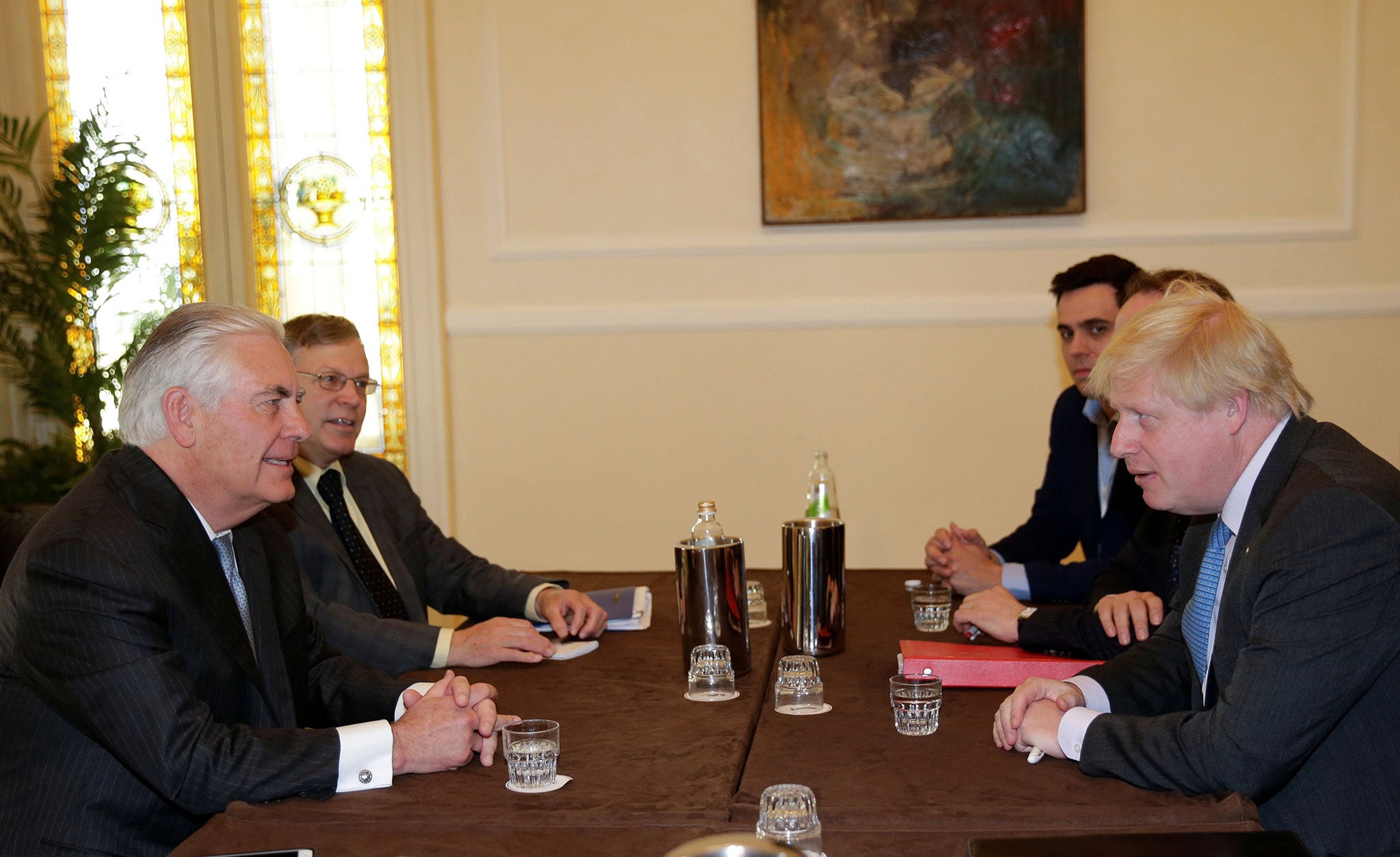Syria crisis: G7 leaders couldn't change Vladimir Putin's mind on backing Assad – even if they wanted to
Russia now relies on Syria for its new status as a great world power – and the West knows the risks of leaving a power vacuum in the Middle East

Your support helps us to tell the story
From reproductive rights to climate change to Big Tech, The Independent is on the ground when the story is developing. Whether it's investigating the financials of Elon Musk's pro-Trump PAC or producing our latest documentary, 'The A Word', which shines a light on the American women fighting for reproductive rights, we know how important it is to parse out the facts from the messaging.
At such a critical moment in US history, we need reporters on the ground. Your donation allows us to keep sending journalists to speak to both sides of the story.
The Independent is trusted by Americans across the entire political spectrum. And unlike many other quality news outlets, we choose not to lock Americans out of our reporting and analysis with paywalls. We believe quality journalism should be available to everyone, paid for by those who can afford it.
Your support makes all the difference.It is very unlikely that Russia will change its support for President Bashar al-Assad of Syria, despite calls to do so from foreign ministers from the G7 nations gathered in Italy in the aftermath of the use of poison gas in Syria and the US missile strikes.
Russia owes its return to great power status in the eyes of much of the world to its military intervention in Syria and will not want to change its previous stance. Mr Assad’s forces, which are backed by Russia, Iran, Hezbollah and Shia militias from Iraq, are close to winning the civil war and it is doubtful if President Putin, even if he wanted to, could remove the Syrian leader from power.
Boris Johnson said that the chemical attack on Khan Sheikhoun on 4 April had “changed everything fundamentally”. But on the contrary the balance of power on the ground in Syria is very much as it was before, and it is improbable that US policy will really switch from giving priority to eliminating Isis and al-Qaeda.
A problem in getting rid of Mr Assad as Syrian leader – as advocated in the past by the US, Britain and France – is that there is no reason to suppose that it would end the war in Syria or modify the savagery with which it is fought. Mr Assad leads one side in a civil conflict that believes that it would be slaughtered or forced to flee if the other side won. It would fight on, with or without his presence.
The other important aspect of the Syrian crisis that remains unchanged by the chemical attack is that, if Mr Assad and his forces were defeated, then the beneficiaries would be the Salafi-jihadi opposition. Isis and al-Qaeda-linked groups dominate the armed resistance to the Assad government even more firmly than they did a year ago.
The Italian foreign minister Angelino Alfano was more cautious than Mr Johnson about getting rid of Mr Assad, saying that decision should be left up to the Syrians. “I have to say, the Libya experiment did not go well,” said Mr Alfano, referring to the aftermath of the killing of Muammar Gaddafi in 2011 after he was defeated by a Nato-backed opposition military campaign and the country collapsed into anarchy. “We are still paying the price."
A further difficulty facing any insistence by G7 states that there be a political “transition” in Syria is that Russia is not Mr Assad’s only foreign ally. Prior to Russian military intervention in Syria in 2015, Iran was Mr Assad’s most important foreign supporter, sending military advisers and leading an axis of Shia powers and movements who see victory in the Syrian war as crucial to their very existence. Before the fall in the price of oil in in 2014, the Iraqi government gave significant financial assistance to Damascus.
It is still unclear how far President Trump’s policy in Syria has really changed from what it was before the 59 cruise missiles were fired last week at a Syrian airbase near the central city of Homs. Until then, Mr Trump’s policy in Syria and Iraq was much the same as that pursued by President Obama and seemed to be reaching a successful conclusion.
Isis is on the retreat in both Syria and Iraq, having lost three-quarters of the city of Mosul, its de facto Iraqi capital, in addition to other Iraqi cities which it once held. In Syria, Isis has lost most of the northern end of the Euphrates valley and is under severe pressure in Raqqa from the Syrian Democratic Forces in which the main military punching power comes from the Syrian Kurdish paramilitary forces backed by the devastating firepower of the US-led air coalition.
Join our commenting forum
Join thought-provoking conversations, follow other Independent readers and see their replies
Comments